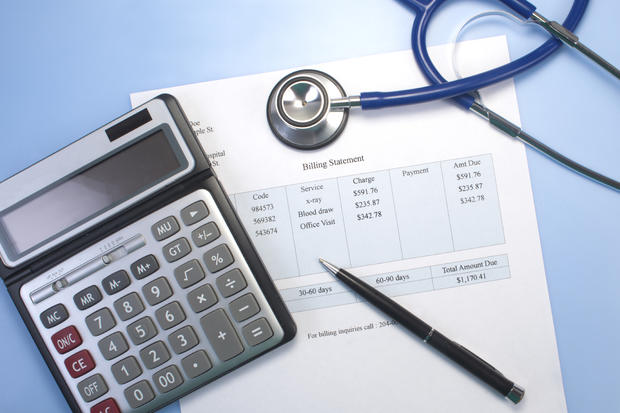4 top tips to reduce high medical bills
There is a solution to crushing medical bills, and it doesn't involve paying someone a lot of money to help you. In fact, let me be the first attorney to tell you that you do not need an attorney to reduce your medical bills. You can be your own advocate.
Here are my top tips from experience in reducing more than $100,000 in medical bills for clients in the past year.
(Learn more about David on NerdWallet's "Ask an Advisor")
Request an itemized bill, and put a hold on your account if necessary
You have a right to know exactly what you are paying for and the cost of each service provided. Patients are often overcharged, or even charged for services that were not provided. You are responsible for auditing your medical bills to save money.
An itemized bill will list each charge individually, rather than just provide the total cost. After you get the itemized bill, call the provider and ask that any unclear charges be explained in plain English. Do not pay a bill that is incorrect or contains overcharges.
Also, you have the right to request a "hold" on your bill, which delays the due date until you can confirm that everything on the bill is correct. Your health care provider might not agree to a hold, but it is worth a try.
Look for common medical billing errors and overcharges
Studies have shown that between 40 percent and 80 percent of medical bills include errors that cost patients money. The most common mistakes include:
- Charging for a more expensive treatment than what was actually performed (upcoding).
- Charging for the same procedure multiple times (duplicate billing).
- Taking services that should be billed as a package and billing them separately at a higher total cost (unbundling).
Be an educated patient, and take initiative in detective work. You never know what you might uncover.
Ask for discounts and fill out hardship applications
Many people think it's impolite to ask medical billing questions, which is understandable given how intimidating the process can be. But I counsel people that understanding what you are paying for and advocating for yourself is not rude or obnoxious. It's simply the best way to avoid someone taking advantage of you.
Discounts are available -- for example, through charity care and other programs -- but the only way to find out about them is to ask questions. Don't be afraid to prod; these programs are not widely known about or advertised. Often, you will be asked to fill out an application to verify your income. While you are waiting for that process to play out, you are within your rights to ask that another hold be placed on your account.
Negotiate, negotiate, negotiate
There is an important phrase to use when seeking to negotiate a lower medical bill: "I am willing to pay something but unable to pay the full amount." This tells the health care provider that you are cooperative and looking for a solution, rather than just looking to get out of paying your bill.
I recommend making a discounted offer of around 60 percent of the original bill. To understand why this makes strategic sense, consider that if a medical provider turns a bill over to a collection company, the provider will have to pay that company about 20 percent to 30 percent of the amount collected. Providers are motivated to make a deal and clear the account.
You can also request a payment plan that gives you as much time as possible to pay off the bill. If you go this route, make sure interest is not being applied on your outstanding balance.
Advocating for yourself when it comes to high medical bills is not easy, but most people can do it without needing an attorney. As I always say: Power to the patient!




